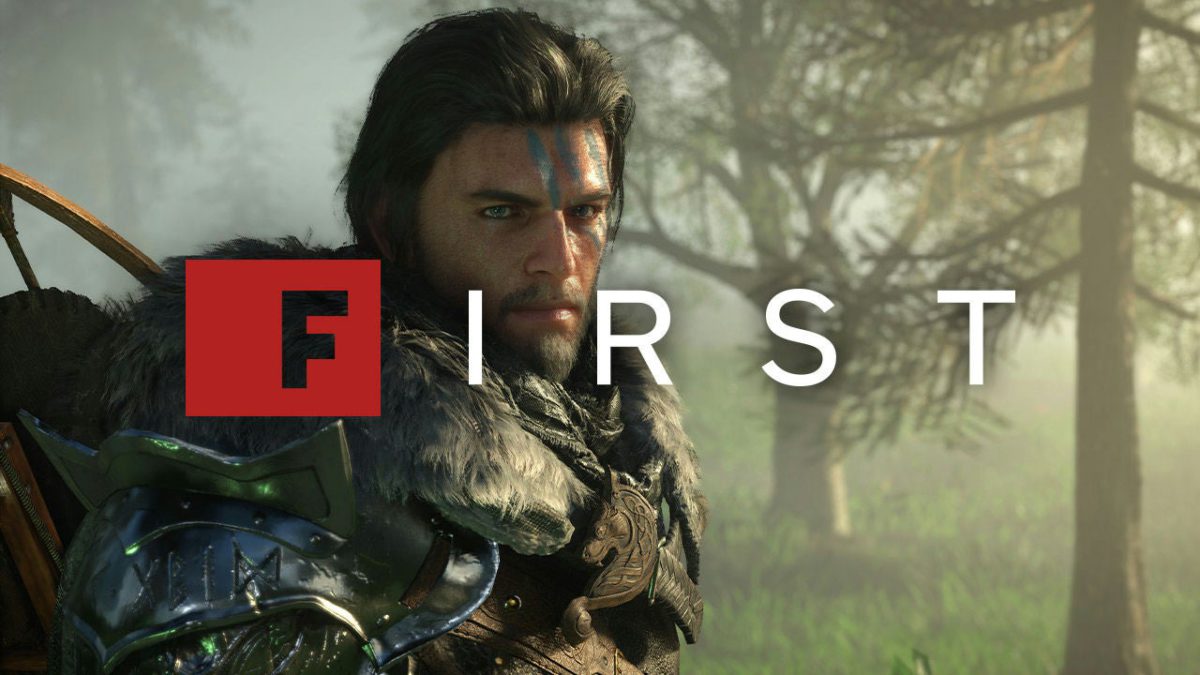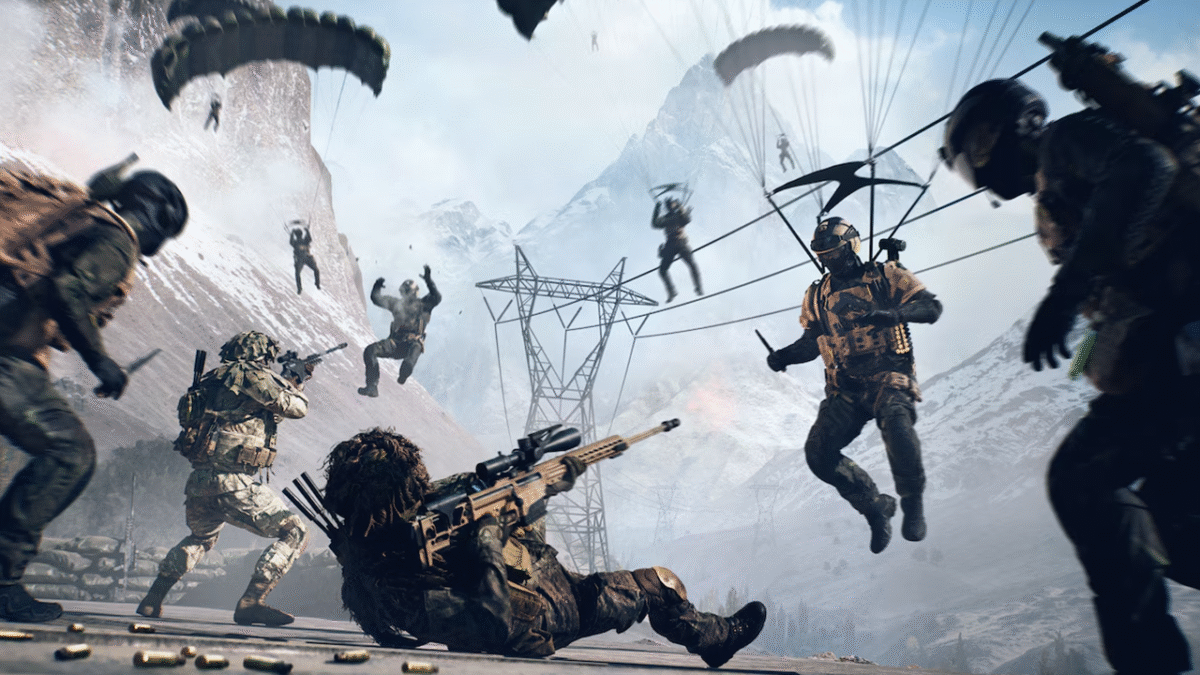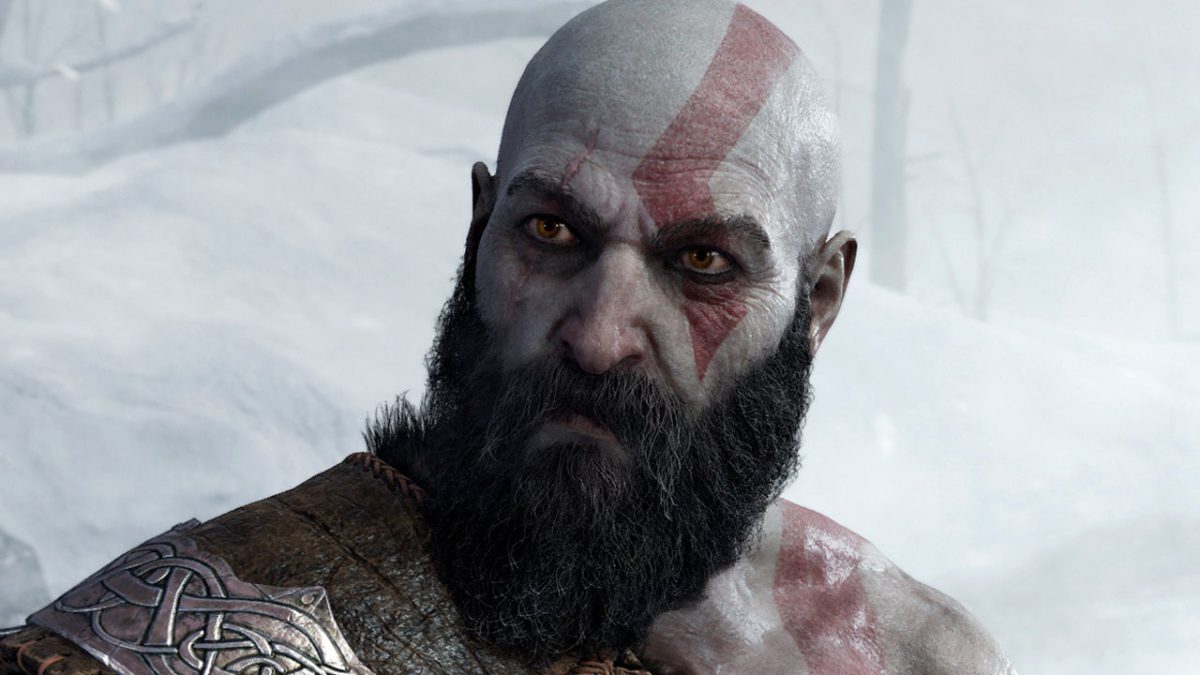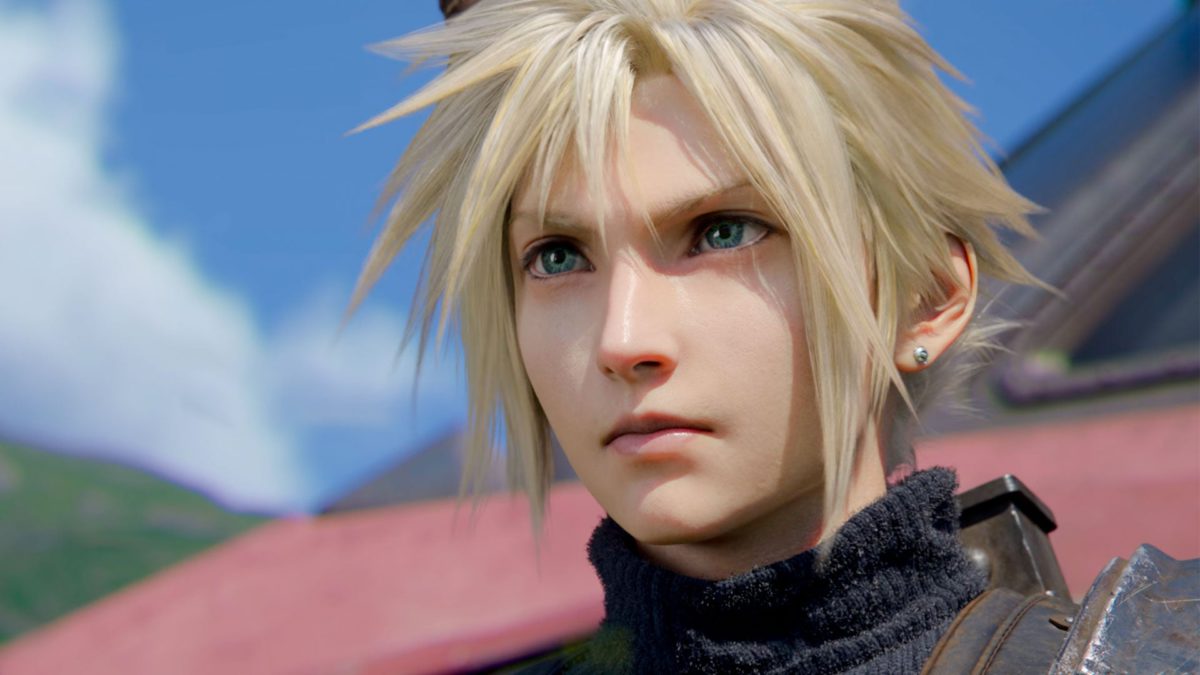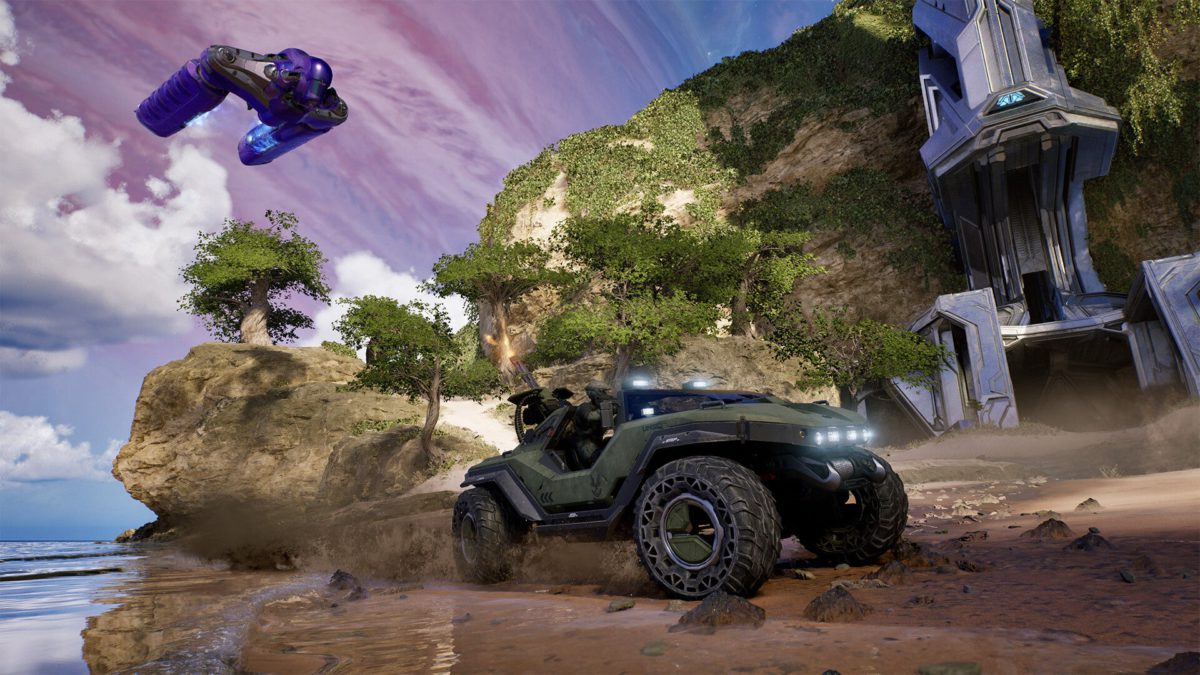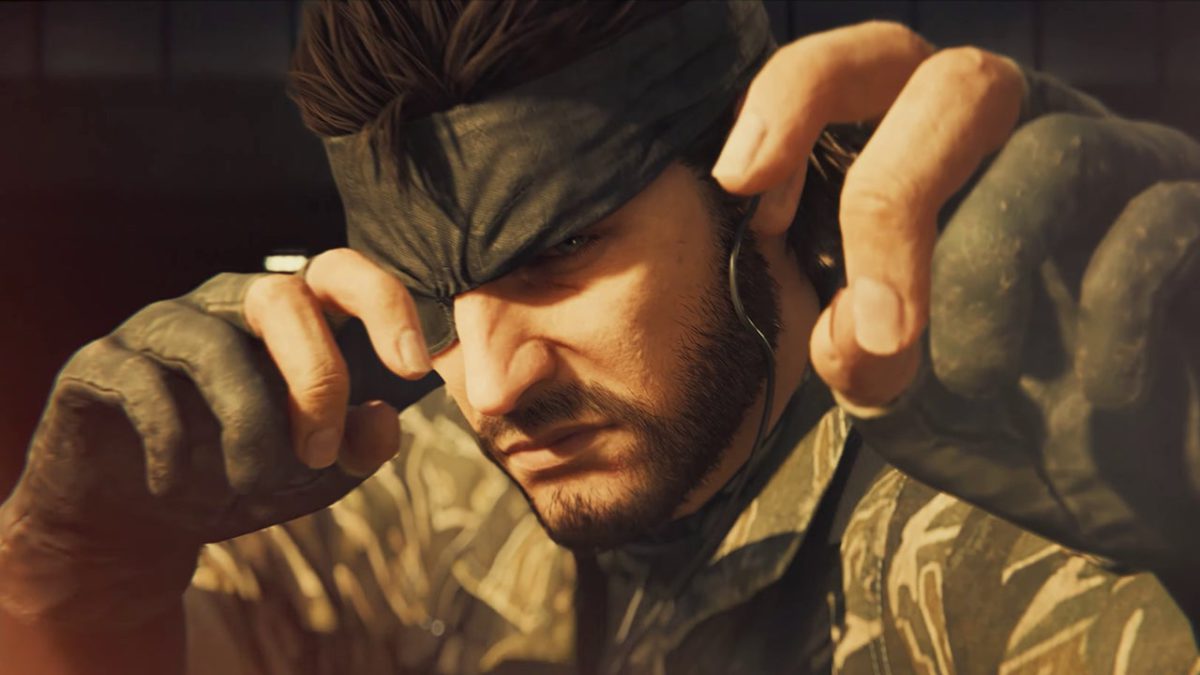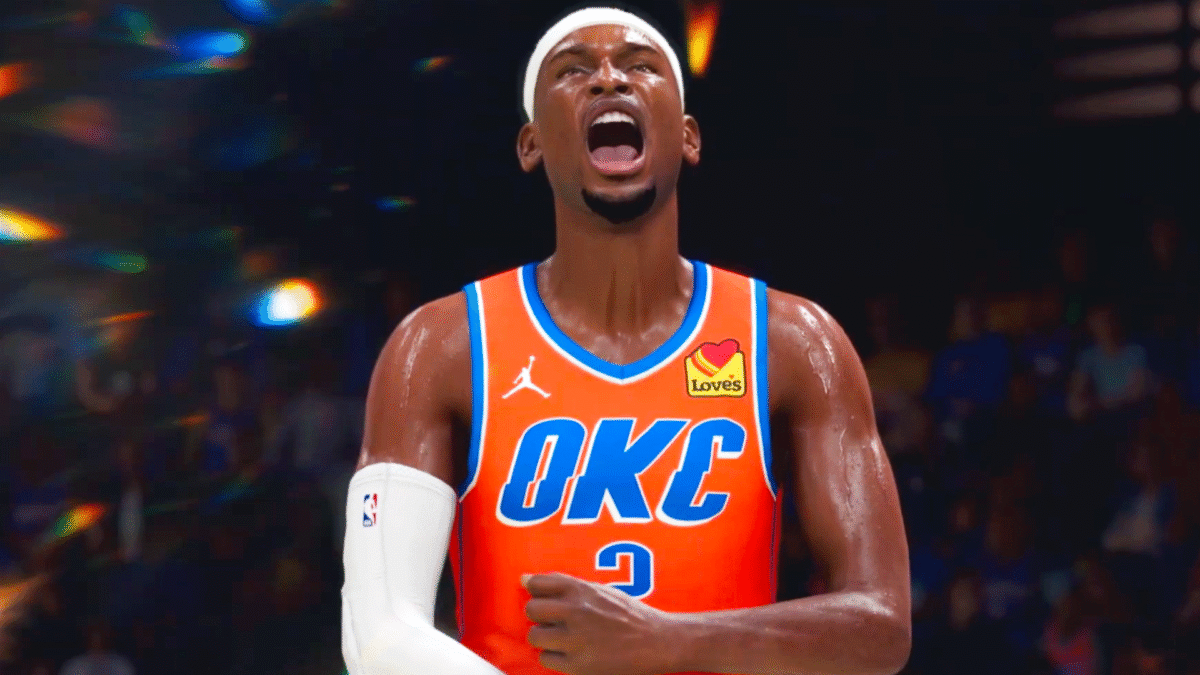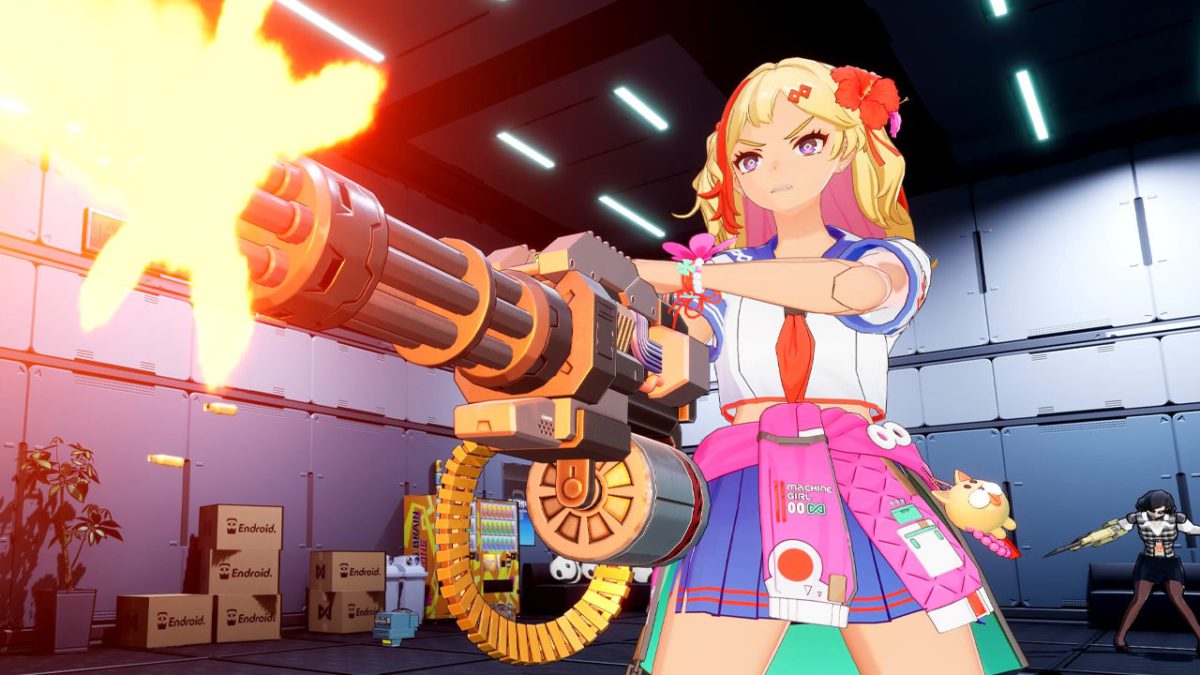
It’s been almost six years since Crimson Desert was first revealed to the world. Across that period, developer Pearl Abyss has shown off a huge array of ideas, mechanics, and boss battles. It’s frequently been cited as something of an “everything game” – an open world adventure with sky islands, mechanical dragons, wrestling moves, interdimensional gateways, interacting elemental effects, and even a Spider-Man web swing. But the more that’s been revealed, the more there’s been the sense that Crimson Desert may be a lot of pieces in need of a whole. Finding that whole was my main objective when I visited Pearl Abyss’ studio in Seoul for this month’s IGN First. And while I can’t say I’ve found it yet, multiple hours of hands-on playtime has revealed a game that’s maybe not as strange as you’d expect. In fact, Crimson Desert feels pretty straightforward.
Pearl Abyss has crafted a reasonably traditional open world adventure, made up of multiple regions peppered with towns, outposts, and castles. There’s the usual collection of main and optional quests, plus classic distractions like fishing. You’d be forgiven for not realising this, though – Pearl Abyss has put almost all its promotional efforts into showcasing boss fights. Not only that, but Crimson Desert’s blend of traditional medieval fantasy with sci-fi and steampunk elements does make it seem like it’s being pulled in several directions at once.
When you’re on the ground and seeing how all these elements interact, though, it doesn’t feel quite so alien. The continent of Pywel is perhaps less like a typical Tolkien-esque fantasy world and more akin to Dungeons & Dragons – a setting that, in recent years, was host to a Mad Max-like vehicular chase through Hell. Pearl Abyss’ design team explained that they wanted Pywel to reflect the variety of our reality, in which some countries feel much more futuristic than others, and note that some of the Pywel’s leaders may be more resistant to the advancement of technology than others – a conflict that’ll be explored through various faction quests. All this means the variety doesn’t feel artificial or there simply for the sake of being wild, even when you’re at the controls of a flying battle robot (which was, of course, designed by dwarven engineers.)
The inclusion of these mechanised and steampunk elements grant Pearl Abyss the creative license to build quests that are a significant departure from anything we’d see in something like Skyrim. A major part of my hands-on time involved completing a quest for Marni, a scientific genius who cloned his own consciousness to create the AI-like entity, H.A.L.L. Naturally the results of such an experiment have gone very wrong, and Marni’s evil digital-magic twin has taken command of a flying fortress that’s terrorizing Pywel’s skies. Defeating H.A.L.L requires the use of a power core, which Marni reveals is hidden inside a “weapon” called Golden Star. And by “weapon”, he means a giant mechanical dragon. While they presumably have ballistic missiles in Pywel, what with the advanced engineering and all, of course the fantasy version of a nuke is flying Mechagodzilla. All that stands between me and this winged menace is… a fortress filled with angry battle robots.
It appears that fortress assaults will be a significant recurring objective in Crimson Desert, considering that my hands-on time involved no fewer than three of them. I can see why Pearl Abyss was keen to show them off, as they are a showcase for some of the project’s strongest achievements. There’s a great sense of atmosphere, with a legion of men from either side battering the living hell out of each other, and you’re caught in the middle of it all. Fun mechanical wrinkles add texture; during one attack I was able to fire signalling arrows that were quickly followed by a bombardment of artillery, decimating enemy soldiers and reducing buildings to splinters. In another, I was able to circumnavigate the brutal melee entirely, sneaking into the castle through a crumbling wall and using the prison as a shortcut to the boss. And in my fight through the robot fortress, a backpack-mounted EMP device allowed me to fry the circuits of both the lumbering ground threats and the airborne bug-bots in one giant blast. There’s always something new to try, something to experiment with.
But as much as these fortress assaults are a demonstration of Crimson Desert’s highs, they simultaneously reveal what could turn out to be some of its biggest blemishes. Battling masses of enemies is surprisingly tedious, feeling messy and repetitive rather than an engaging chain of frontline fights. An awkward lock-on feature pushed me away from one-on-one duels and into a more freeform playstyle, but that came with the baggage of imprecise strikes and occasionally kicking the air instead of faces. Absolutely none of these issues hamper the boss battles, which was my only experience of Crimson Desert prior to this demonstration, and I was quite surprised at how different combat can feel in alternative scenarios, even when using the same moveset.
It’s in these smaller, less refined details where Crimson Desert threatens to lose itself. There are occasions where you need to pick up and manipulate objects, such as planting a banner to inspire your allies. Doing so requires standing still, turning to face the object, activating a focus mode, rapidly tapping a button to lift your target, and then finally manually carry it. All of this is a slightly baffling annoyance when erecting flags, but it turns into a genuine frustration in the middle of a boss battle, when you’re desperately trying to swing a fallen masonry column during the precious few seconds in which the boss is stunned.
Thankfully, no such awkward Ultrahand juggling is required to extract the power core from Golden Star. As we explored earlier this month in our making-of feature, this is a boss battle with a unique mechanic that must be discovered in the (quite literal) heat of battle. The dragon’s flaming breath activates an array of pylons dotted around the fortress’ battle arena, which then dispense EMP bombs that you can fire from an arm-mounted cannon. The system creates a repeating phase loop; Golden Star circles above, belching the flames that produce the EMP bombs that will eventually bring him crashing to the ground, where you can unleash a barrage of strikes until he reboots and begins the cycle anew. Pearl Abyss are keen to point out you don’t have to do this – you could, for instance, use lightning-wreathed arrows to apply a stun, or simply chip away at his health bar with ranged attacks – but I feel that the real enjoyment in all of Crimson Desert’s boss fights has been finding the unique mechanic built into the arena or even the enemy itself.
With the power core obtained, I take to the skies on the back of my own (completely organic) dragon to attack H.A.L.L’s flying fortress. The initial assault is pretty simple – I have my mount spit fireballs at a number of weak spots in the structure’s shields to break down the defences and allow me to land. But getting inside the fortress itself is more complicated; a navigation puzzle that’s just the right side of obtuse. My journey takes me up elevator shafts and along a precarious route perched on the fortress’ exterior. At one point I have to activate a machine by rotating a wooden pillar that has no crank, achieved by using the thrust attack to bury my blade in the timber to create my own handle. There’s no prompt for this, and I appreciate that the solution is to think about your ability set in a non-conventional manner.
Such an approach continues inside, where defeating H.A.L.L is more of a puzzle than a traditional challenge of brawn. I like that Crimson Desert’s AI spirit character doesn’t just become another boss brawl – another indicator that the world’s weird steampunk and sci-fi elements actually make some kind of in-universe sense. This time, though, the solution really is obtuse, and someone from Pearl Abyss had to spell it out to me. Hopefully the hours prior to this quest will have equipped you with the knowledge of how to approach this particular foe.
H.A.L.L’s flying fortress isn’t the only airborne destination I visited. Suspended high above Pywel are a scattering of Abyss Islands, accessed through portals that are unlocked with mysterious Abyss Artefacts. These islands appear to come in multiple guises; last year we saw that one of them is home to an alchemist called Alustin and his Library of Providence, and my hands-on session included one that was more akin to Zelda’s puzzle shrines. Its checkerboard floor was essentially a room-size circuit board in need of a total rewiring, and finding the correct path through the grid of rotating flagstones unlocks the island’s treasure trove. This is, of course, the sort of puzzle you’ve solved in everything from Watch Dogs to BioShock, but I enjoyed how your equipment is integral to completing it – your lantern illuminates the correct pathway, and your grapple hook is used to spin each tile. So while this challenge is not particularly taxing, I hope its solid foundations are the basis for more interesting puzzles that await among the clouds.
When you’ve uncovered an Abyss Island’s secrets, you can leap off the side and float down to earth, where plenty more traditional open-world fare awaits. There are towns to visit, in which you’ll find shop keepers to trade with and bounties to take on. Out in the wilderness there are camps to clear out and roaming barbarians to slaughter. And then there’s the factions. From what I glimpsed in the menus, there are dozens and dozens of them, although some will be more important than others, I’m told. A few have their own questline, such as House Wells, a family of nobles led by a Duke who’s lost his castle to rebel forces – a situation that’s the catalyst for one of those aforementioned fortress assaults.
Pearl Abyss was quick to clarify that these groups are not like Fallout’s factions, and allegiances with them won’t change the course of the story or impact Crimson Desert’s ending (which is set in stone.) And so I’m left wondering what are the faction quests in aid of? When asked, Pearl Abyss’ design team explained that they were there to ensure the factions felt like significant actors in the plot, and that they offered more content for players to complete. That considered, I am a little apprehensive that at least some of Crimson Desert’s offerings will be “stuff to do” rather than meaningful, interlinked opportunities.
That brings us back to my very first question. What is Crimson Desert as a whole? I know it’s a vast open world with deep, fighting-game inspired combat that works better against bosses than it does against fodder. It’s got spectacle-laden quests that take you from in-the-mud castle assaults all the way up to aerial strikes on a steampunk Death Star. And it’s littered with good time distractions, from fishing to taming bears and buckling up in a battle mech. But I’m still waiting to discover the glue between all this that elevates an open world to new heights.
Shadow of Mordor has the Nemesis system, which chains its enemies together into a foe-conquering big picture. Red Dead Redemption 2’s systems are united by a pursuit of realism and authenticity that makes its campaign feel like a life lived rather than a game played. And this year’s Ghost of Yotei links every activity on its map to a new unlock on your skill tree, ensuring even little diversions are a growth opportunity. That’s the stuff that’s so far been missing from Crimson Desert’s demonstrations, and the thing I hope will eventually be revealed when I get to play multiple consecutive hours, rather than a collection of isolated quests and bosses. Without it, I still think Crimson Desert stands a solid chance of being an overall good time. But with it, it could become something much more special.
Matt Purslow is IGN’s Executive Editor of Features.

